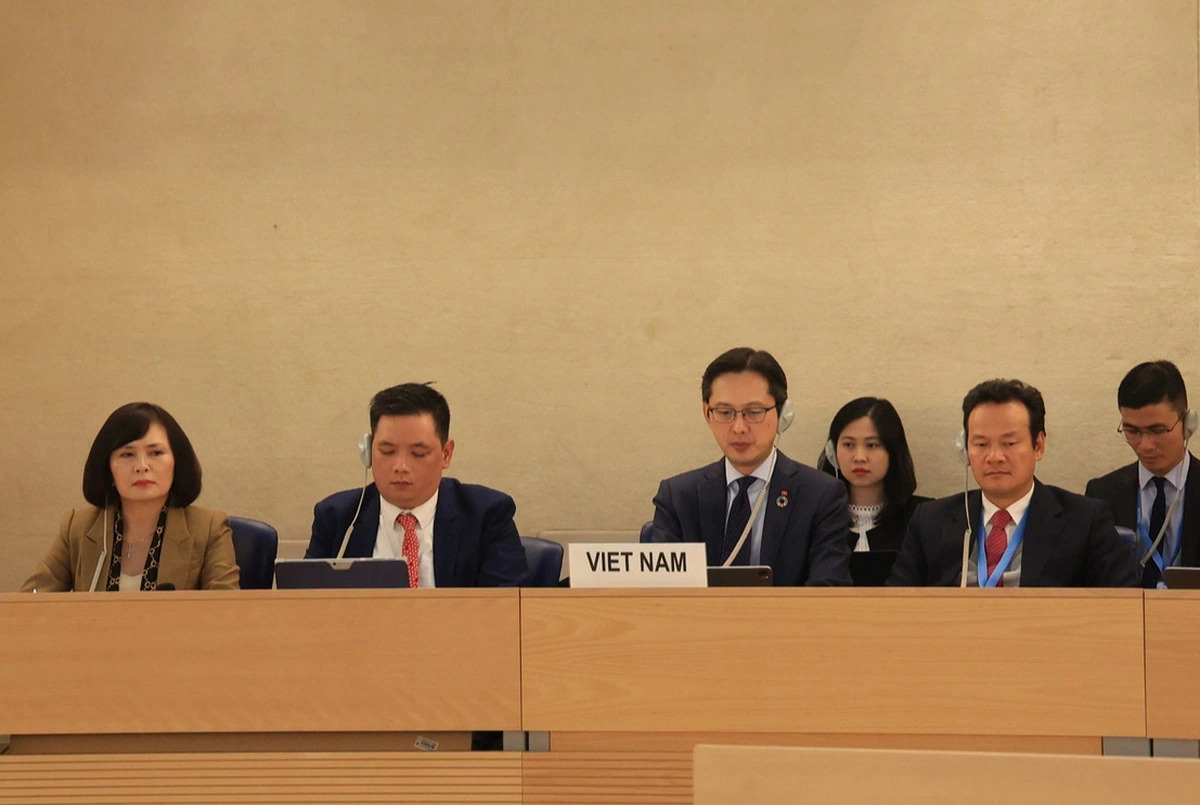The United Nations Human Rights Council (UNHCR) has adopted Vietnam's Universal Periodic Review (UPR) cycle IV report at its 57th regular session, where Vietnam announced its acceptance of more than 80 percent of the recommendations from 133 countries, according to Deputy Minister of Foreign Affairs Do Hung Viet.
At a press meeting in Hanoi on Tuesday, Viet briefed reporters on the session he attended in Geneva, Switzerland, on September 27, along with other delegates from 90 countries, international organizations, and non-governmental organizations (NGOs).
He recounted that Vietnam accepted 271 among the 320 human rights recommendations from 133 countries, marking an acceptance rate of 84.7 percent, the highest in four cycles.
The official also said these recommendations were made by the countries during a dialogue on Vietnam's national report on human rights protection and promotion in May this year.
Viet remarked that the high rate highlights Vietnam’s dedication to protecting and promoting human rights, and its respect for the UPR mechanism and the UNHCR.
The foreign ministry will work with other ministries and agencies to create a master plan to implement the 271 approved recommendations and submit it to the prime minister for approval.
As per the plan, specific responsibilities and tasks will be assigned to each ministry, sector, and agency to engage the recommendations, plus a board will be set up to monitor and evaluate their performance results.
“In this process, Vietnam will cooperate with the UN, international partners, and other countries to seek more resources that help best implement the recommendations,” Viet stated.
He also provided the delegates with updated information on the human rights situation in Vietnam, including the recent promotion of gender equality, women empowerment, and protection of vulnerable groups.
He highlighted Vietnam's efforts toward victims of typhoon Yagi, and the continued work following the disaster’s aftermath.
The official spotlighted the country’s 2024 amnesty policy that aims to help thousands of prison inmates reintegrate into society and encourage them to contribute positively to the community.
Vietnam will continue to enact and amend key laws related to human rights and citizens' rights, aiming to ensure the effective protection and enforcement of these rights in the country, Viet told the delegates.
The session operated on the foundations of dialogue, cooperation, equality, objectivity, transparency, and constructiveness.
Most of the commentary at the session praised Vietnam’s efforts to promote human rights and its provision of useful information, which helped the international community better understand the country’s situation.
“Some delegates reviewed the past struggle of the Vietnamese people to gain independence, freedom, and happiness, considering it the foundation for protecting and promoting human rights in Vietnam,” he narrated.
The official emphasized that the Vietnamese government always creates a favorable environment for people to contribute to the lawmaking process, and rejected the misleading arguments and unverified information presented at the session by a few NGOs on the human rights situation in Vietnam.
Viet asserted that any exercise of human rights must be based on the rule of law, respect for the rights and interests of individuals and communities, as well as the stability and prosperity of the whole country.
The diplomat stressed Vietnam’s determination not to tolerate acts of taking advantage of freedom and democracy to incite and cause instability in Vietnam.
At the conclusion of the session, the UNHCR reached a consensus on adopting Vietnam’s UPR cycle IV report.
Established in 2006 and operating every four and a half years since 2008, the UPR is an intergovernmental mechanism that comprehensively reviews the human rights situation in all UN member states.
Like us on Facebook or follow us on Twitter to get the latest news about Vietnam!



















































